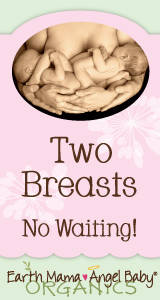|
|
| |
|
Return to Page 1: |
Importance of a Healthy Diet - for Optimal Physical Development
You child will grow at an astonishing rate from infancy through his or her late teenage years. During this time he will be laying down new tissue at an astonishing rate. Children grow from roughly twenty-five pound to well over one hundred pounds, in muscle mass, bone tissues and other structures throughout the body.
You child also needs vitamins and minerals to fuel her enzyme and energy production. Essential amino acids are key to building tissue and synthesize more than three hundred thousand different functional proteins.
Protein in particular is important for optimal physical development because protein provides the materials for growth and repair. Calcium and Magnesium are vital for the development of strong bones and teeth and for helping the nerves work and to regulate growth and for the clotting of blood.
During this time your child will need 30 or more grams of well balanced protein that contains all eight essential amino acids per day. Unprocessed fats from whole foods are also vitally important and should comprise around 30% of your child’s calorie intake.
Importance of a Healthy Diet - For Optimal Emotional Development

From the first day an infant enters the world he begins a journey of learning how to relate to other people and deal with various emotions. The first two years of life make up the nurturing stage, during which a baby develops a bond of security and trust.
Two-year-olds are excited about a newly discovered sense of control. This stage is filled with rapid mood shifts, stubbornness, tantrums and negativism of wanting to do it "my way." It's also a time of clinging to parents, as many toddlers go through what's known as separation anxiety. As they approach their third birthday, they begin to socialize with their peers and identify with the parent of the same sex.
The preschool years (ages 3 to 5) are the "play age." In this stage, children broaden their social life, playing with other children as they learn to cooperate with peers. Preschoolers start becoming competitive and proud of their achievements. Fantasy makes up much of their active play. However, it's also a stage when they can develop several fears, such as being afraid of the dark.
The school-age period (ages 6 through 12) is a transition from fantasy and free-form play to group games and sports. During the school-age stage, children begin feeling guilty about wrong choices. They learn rules of how to relate to others, as well as board game rules and rules of exclusion and inclusion. A healthy school-age child should be able to express emotions. Around age 5, children learn to share and keep secrets. Children ages 7 and 8 become more aware of their private thoughts and feelings. They begin comparing themselves with peers and are concerned about their abilities.

Adolescence is usually a turbulent time when kids want to be free of their parents, yet are still dependent on them. Approval from peers takes preference over pleasing parents. It's a roller-coaster ride of emotions as they struggle to find their own identity.
What you child eats can have a huge impact on his or her emotional development because food causes blood sugar changes and can stimulate or depress your child’s energy levels. These physical states will directly impact how your child interprets his world and interactions with others in that world.
Negative moods and pessimism can be directly related to having low energy caused the blood sugar swings brought forth from poor diet. Chronic illness can cause depression and suicidal thoughts. Digestive issues can cause pain, trigger depression and encourage anti social behavior.
Importance of a Healthy Diet – What next?
Now that you understand the importance of a healthy diet, we are hoping you will want to improve your diet and the food your family consumes. For specific information about what your children should be eating read a Healthy Diet for Kids.
To understand exactly what is flawed about the current USDA Dietary Guidelines and for our recommended guidelines read a Healthy Diet Pyramid.
If you are pregnant, read Healthy Pregnancy Diet to learn what you should be eating to ensure your baby develops optimally. To learn exactly how many servings you should be eating of what foods read a Healthy Diet for Pregnancy.
Recommended Reading
Probably the best book we have found about diet and nutrition for children is The Crazy Makers: How the Food Industry is Destroying Our Brains and Harming our Children by Carol Simontacchi.
There are many great articles on the Weston A Price website about the importance of a healthy diet including:
- Modernizing Your Diet with Traditional Foods by Jen Allbritton, CN
- Traditional Diets for Healthy Children by Sally Fallon Morell











New! Facebook Comments
Tell us what you think!